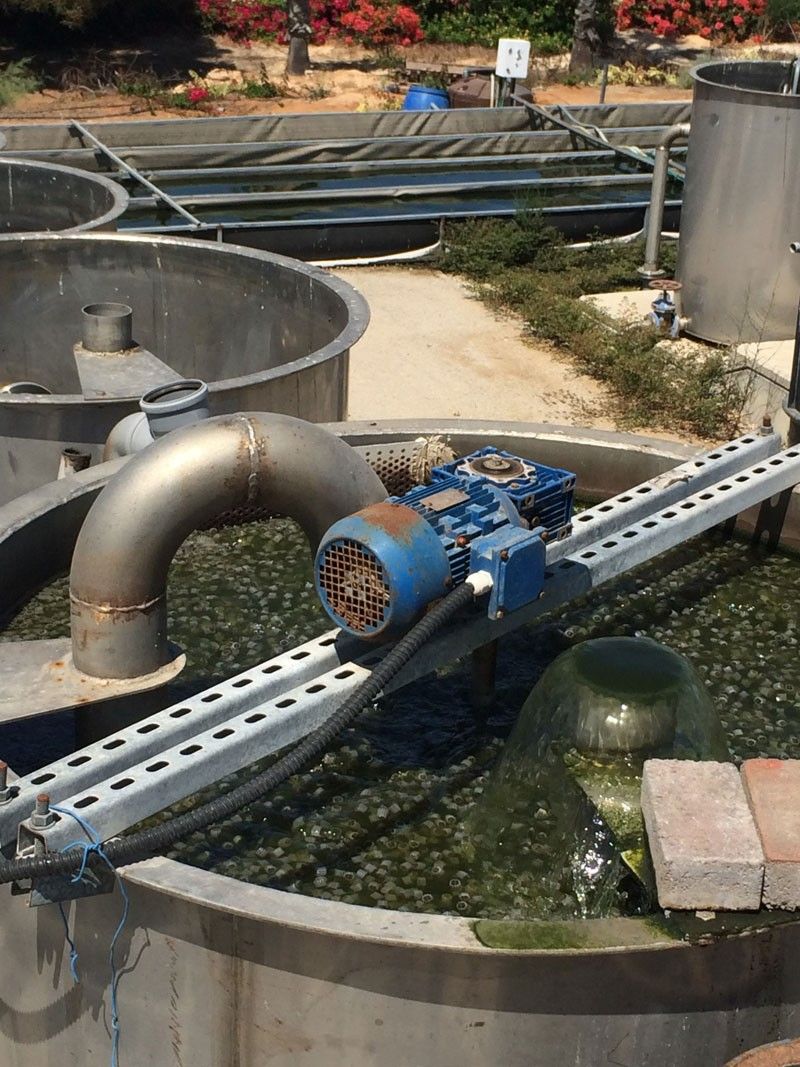Israeli startup using algae to clean sewage

An Israeli startup has found a way to use algae to make cleaning sewage more sustainable.
Udi Leshem, chief executive officer of Aqwind, says they have developed a way to clean sewage affordably and sustainably, producing water that is fit for irrigation.
“Natural systems can't cope with concentrated sewage,” he says. “We imitate the natural systems.”
In practice, water treatment plants rely on bacteria to break down the organic matter in the sewage. But they need large amounts of energy to oxygenate the water for the bacteria to breathe.
As an alternative, Aqwind – formerly known as Aquanos – added algae to the equation.
Algae, as other plants do, breathe in carbon dioxide and produce oxygen, which in turn is used by the bacteria that break down the organic material in the sewage.
The result? Water clean enough for agriculture.
By putting algae in the process, Leshem says their system reduced the energy requirement in water treatment by 70 to 90 percent.
“Treating sewage is responsible for around four percent of total electricity usage in the United States," he says. "Generating the oxygen for the bacteria to breathe is responsible for a quarter to half of that."
The Aqwind system only uses about 50 percent of the electricity needed by the most efficient treatment plants, making it suitable for low-income countries.
Aqwind is seen as a viable solution, especially in countries thay dump sewage right into the sea as they cannot afford to build all the expensive wastewater plants.
To ensure that existing systems do not go into waste, Leshem says their system may also be added to existing wastewater treatment plants.
And aside from reducing the energy requirement needed to clean sewage, he says Aqwind may also serve as an energy source as it produces methane that can be used for power generation.
The company has already sold 25 systems, including one in the United States, and hopes to further broaden their reach. — Ruth Schuster, Haaretz (Israel)
This article is being published as part of Earth Beats, an international and collaborative initiative gathering 18 news media outlets from around the world to focus on solutions to waste and pollution.
- Latest
- Trending




























